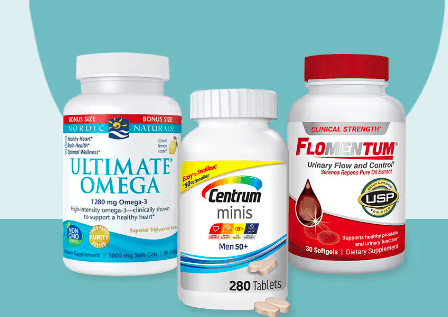The Ultimate Guide to Choosing The Best Food Supplements for a Healthier Life
In today’s fast-paced world, maintaining a balanced diet can be a challenge. We often find ourselves juggling work, family, and various commitments, leaving little time to ensure we get all the nutrients our bodies need.
This is where food supplements come into play. They can bridge the gap between our dietary choices and our nutritional requirements.
In this comprehensive guide, we will delve into the world of food supplements and help you discover the best food supplements for your individual needs.
What Are Food Supplements?
Food supplements, often referred to as dietary supplements, are products designed to provide essential nutrients that may be lacking in your regular diet.
These can include vitamins, minerals, amino acids, fatty acids, and other beneficial substances.
Food supplements come in various forms, such as capsules, tablets, powders, and liquids, making them convenient for different preferences.
The Importance of Choosing the Right Food Supplements
Before we dive into the specifics of the best food supplements, it’s crucial to understand why selecting the right ones matters. The right supplements can:
- Boost Your Health: Proper supplementation can fill nutritional gaps, ensuring your body functions optimally.
- Enhance Your Well-Being: Some supplements can improve your mood, energy levels, and overall quality of life.
- Support Specific Goals: Whether you’re an athlete looking to improve performance or aiming for weight management, the right supplements can help.
- Prevent Deficiencies: In cases where dietary restrictions or medical conditions limit your nutrient intake, supplements can prevent deficiencies.
Now, let’s explore some of the best food supplements you should consider incorporating into your daily routine:
1. Multivitamins
Multivitamins are a one-stop solution to cover a wide range of essential vitamins and minerals. They’re a convenient choice for anyone looking to maintain overall health.
2. Vitamin D
Known as the “sunshine vitamin,” Vitamin D is vital for bone health, immune function, and mood regulation. If you spend little time outdoors, a supplement may be necessary.
3. Omega-3 Fatty Acids
Omega-3 fatty acids are beneficial for heart health and cognitive function. They are commonly found in fish oil supplements.
4. Probiotics
For a healthy gut and digestive system, consider incorporating probiotics into your routine. They promote a balanced gut microbiome.
5. Iron
Iron supplements are crucial for individuals with iron-deficiency anemia, pregnant women, and vegetarians or vegans who may have lower iron intake.
6. Calcium
Maintaining strong bones and teeth requires an adequate intake of calcium. This supplement is essential for those at risk of calcium deficiency.
7. B Vitamins
B vitamins, including B12 and B6, play key roles in energy metabolism, brain function, and nerve health. Vegans and vegetarians often need to supplement these vitamins.
8. Magnesium
Magnesium supplements are known for their calming effect on the nervous system and their role in muscle function.
9. Zinc
Zinc is essential for immune health, wound healing, and overall well-being. It’s particularly important during cold and flu season.
10. Collagen
If you’re looking to support your skin, hair, and joint health, collagen supplements may be worth considering.
FAQs
1: Are food supplements safe for everyone?
While most food supplements are safe for the general population, it’s essential to consult with a healthcare provider, especially if you have underlying medical conditions or take prescription medications.
2: Can I get all the nutrients I need from food alone?
Ideally, a balanced diet should provide all essential nutrients. However, supplements can be valuable for filling nutritional gaps, especially in cases of dietary restrictions or deficiencies.
3: What’s the best time to take food supplements?
The timing of supplement intake can vary depending on the type. It’s often recommended to follow the instructions on the product label or consult with a healthcare professional.
4: How long does it take to see results from food supplements?
Results can vary depending on the supplement and individual factors. Some may notice improvements within a few weeks, while others may take longer.
5: Are natural supplements better than synthetic ones?
Natural and synthetic supplements can both be effective. The choice depends on individual preferences and needs.
6: Can I take multiple supplements at once?
It’s generally safe to take multiple supplements, but it’s essential to avoid excessive intake of specific nutrients. Consulting with a healthcare provider can help you create a safe and effective supplement regimen.
7: Where can I purchase high-quality food supplements?
You can find reputable food supplement brands at pharmacies, health food stores, and online retailers. Be sure to research and choose products from trusted sources.
Remember, the best food supplements are those that align with your unique health goals and needs. Make informed choices, prioritize your well-being, and embark on a journey to a healthier you!
Conclusion
Incorporating the right food supplements into your daily routine can be a game-changer for your health and well-being. Remember that individual needs vary, so it’s advisable to consult with a healthcare professional before starting any new supplement regimen.
By making informed choices and prioritizing your health, you can embark on a journey to a healthier you.




